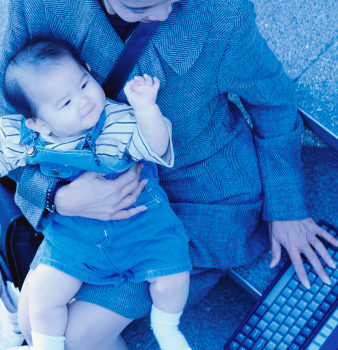 As the president of a university focused on educating women, I ask myself daily how we can make an impact on the millions of women who have not yet earned a college degree. The number of educationally underserved women in this country is truly staggering. According to U.S. Census figures, 76 million adult women do not have a bachelor’s degree. It is incumbent upon us to help each one of these women reach her potential. If we do, the results will be astounding. Education has the potential to break the cycles of poverty and financial instability that have plagued families for generations. As the Lumina Foundation President Jamie Merisotis noted in an August 2014 commentary: “By providing greater postsecondary access and success for all Americans, we build stronger economies, thriving communities and a greater quality of life. It’s clear that higher education remains the best avenue to prosperity, opportunity and a stronger nation.”
As the president of a university focused on educating women, I ask myself daily how we can make an impact on the millions of women who have not yet earned a college degree. The number of educationally underserved women in this country is truly staggering. According to U.S. Census figures, 76 million adult women do not have a bachelor’s degree. It is incumbent upon us to help each one of these women reach her potential. If we do, the results will be astounding. Education has the potential to break the cycles of poverty and financial instability that have plagued families for generations. As the Lumina Foundation President Jamie Merisotis noted in an August 2014 commentary: “By providing greater postsecondary access and success for all Americans, we build stronger economies, thriving communities and a greater quality of life. It’s clear that higher education remains the best avenue to prosperity, opportunity and a stronger nation.”
The role of women has changed significantly in the past 50 years. Women now represent half of all U.S. workers, but hold a disproportionate 62% of minimum-wage jobs, according to The Shriver Report, a nonprofit initiative that raises awareness about women’s issues. One in three adult women is living in poverty or on the brink of it. The Shriver Report also notes that almost two-thirds of U.S. jobs will need some form of postsecondary education by 2020, meaning that the prospects for women with a bachelor’s degree will continue to grow. The economic reality is compelling: A woman with a college degree will, on average, make almost $1 million more than a woman with only a high school diploma. In turn, a woman with a degree becomes a homeowner, taxpayer and consumer. We simply will not be able to thrive as an educated, prosperous nation if 76 million women are left behind. We need to establish a new model of higher education that will enable these women to earn a college degree.
Through innovative use of technology, universities can deliver education to women by creating flexible learning experiences catered to their specific needs and customized to their schedules. At Bay Path University we have established The American Women’s College, an all-women, all-online degree program, and the first of its kind in the nation. For women balancing work, school and family responsibilities, tailored online offerings allow them to learn at a time and pace that works best for them.
But as technology evolves, online education offerings need to evolve too. Bay Path recently received a $3.5 million grant from the U.S. Department of Education, allowing us to pioneer a revolutionary learning platform called SOUL (Social Online Universal Learning). SOUL facilitates the acceleration of the degree-attainment process for students by creating an adaptive, customized learning environment that leverages robust learning analytics to inform instructional approaches. The data collected through the SOUL platform allows faculty to more rapidly understand which students are completing each learning module, and which are falling behind or failing to complete them accurately. Tracking student performance in real-time permits faculty to proactively respond and intervene immediately when a problem arises so students can stay on track and graduate on time.
Although technology will continue to play an increasing role, higher education must also create a holistic learning environment to help students become confident contributors to their communities and workplaces. Multiple factors, which can be tailored to a specific type of student, also influence the likelihood of degree attainment. For example, through the SOUL initiative at Bay Path, virtual social communities enable women to share their experiences and support one another through their educational journey. Additionally, Bay Path’s WELL (Women as Empowered Learners and Leaders) program provides each student with an opportunity to reexamine her life and career goals and take ownership of her future. Educator coaches, mentors, including some faculty members, and peer support are an integral part of this approach.
Many peer institutions are making great strides with adult women learners and know firsthand the challenges they face. Yet, if there is one thing we can do as members of the higher education community, it is to fully understand the implications of our current state and federal financial aid policies, and, more important, the loan-repayment requirements to ensure they reflect the realities of educating our adult population.
Our present-day adult women students will not be the only ones to gain from a college degree. Generations for decades to come will benefit. In fact, the Shriver Report also indicates that “parental education attainment is now more important than family income in predicting a child’s future opportunity.” The evidence is clear: Educate the woman and you educate the child. We live in a constantly changing world where we must find new ways to reach, encourage, educate and challenge adult women.
Carol A. Leary is president of Bay Path University.
[ssba]
